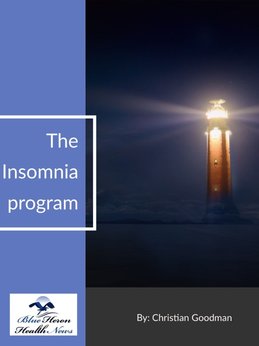
The Insomnia Program™ By Christian Goodman This program has been created by Christian Goodman, a natural health expert and sufferer of insomnia. He has used an audio program to let your fall sleep with the help of a bit of a hypnotic effect on your body.
How does insomnia affect mental health?
Insomnia has a profound impact on mental health, contributing to the development, exacerbation, and persistence of various mental health disorders. Here’s how insomnia affects mental health:
1. Increased Risk of Depression
- Bidirectional Relationship: Insomnia and depression often coexist, with each condition influencing the other. Chronic insomnia is a strong predictor of depression; studies suggest that individuals with insomnia are more likely to develop depression compared to those without sleep disturbances (Labiotech.eu) (Med Xpress).
- Negative Thought Patterns: Insomnia can exacerbate negative thinking and cognitive distortions, which are common in depression. The lack of restorative sleep affects the brain’s ability to regulate emotions, leading to increased feelings of sadness, hopelessness, and irritability (FIU News).
2. Development of Anxiety Disorders
- Hyperarousal: Insomnia contributes to a state of hyperarousal, where the body and mind are excessively alert. This heightened state of arousal is closely linked to anxiety, leading to the development or worsening of anxiety disorders (Labiotech.eu).
- Worry and Rumination: Difficulty sleeping can lead to increased worry and rumination, especially at night. This can create a vicious cycle where anxiety about not sleeping perpetuates insomnia, further worsening anxiety symptoms (Med Xpress).
3. Cognitive Impairment
- Impaired Concentration and Memory: Chronic insomnia impairs cognitive functions such as concentration, attention, and memory. These cognitive deficits can contribute to difficulties in daily functioning, which may increase stress and anxiety, further impacting mental health (FIU News).
- Decision-Making and Problem-Solving: The lack of sleep associated with insomnia affects the brain’s ability to make decisions and solve problems effectively. This can lead to increased frustration and a sense of helplessness, which can negatively impact mental well-being (Labiotech.eu).
4. Mood Instability
- Irritability and Anger: Insomnia often leads to mood disturbances, including increased irritability, anger, and emotional volatility. These mood changes can strain relationships and contribute to feelings of social isolation (Med Xpress).
- Emotional Dysregulation: The restorative functions of sleep are crucial for emotional regulation. Without adequate sleep, individuals may find it difficult to manage their emotions, leading to heightened emotional responses to stressors (FIU News).
5. Increased Risk of Substance Abuse
- Self-Medication: Individuals with insomnia may turn to alcohol, over-the-counter sleep aids, or other substances in an attempt to manage their sleep problems. This self-medication can lead to substance abuse, dependence, and further exacerbate mental health issues (Labiotech.eu) (Med Xpress).
- Worsening Mental Health: Substance use can interfere with sleep architecture, worsening insomnia and contributing to a cycle of poor mental health and sleep disturbance (FIU News).
6. Chronic Stress
- Stress Response: Insomnia activates the body’s stress response, leading to increased levels of cortisol, the stress hormone. Chronic stress can lead to a range of mental health issues, including anxiety, depression, and burnout (Labiotech.eu).
- Impact on Coping Mechanisms: Lack of sleep can impair an individual’s ability to cope with daily stressors, making them more vulnerable to mental health disorders (FIU News).
Conclusion
Insomnia has a profound and multifaceted impact on mental health, contributing to the development and worsening of conditions such as depression, anxiety, mood disorders, cognitive impairment, and substance abuse. Addressing insomnia through proper treatment, including cognitive-behavioral therapy, lifestyle changes, and medical intervention, is crucial for improving mental health outcomes and breaking the cycle of poor sleep and psychological distress.

The Insomnia Program™ By Christian Goodman This program has been created by Christian Goodman, a natural health expert and sufferer of insomnia. He has used an audio program to let your fall sleep with the help of a bit of a hypnotic effect on your body.